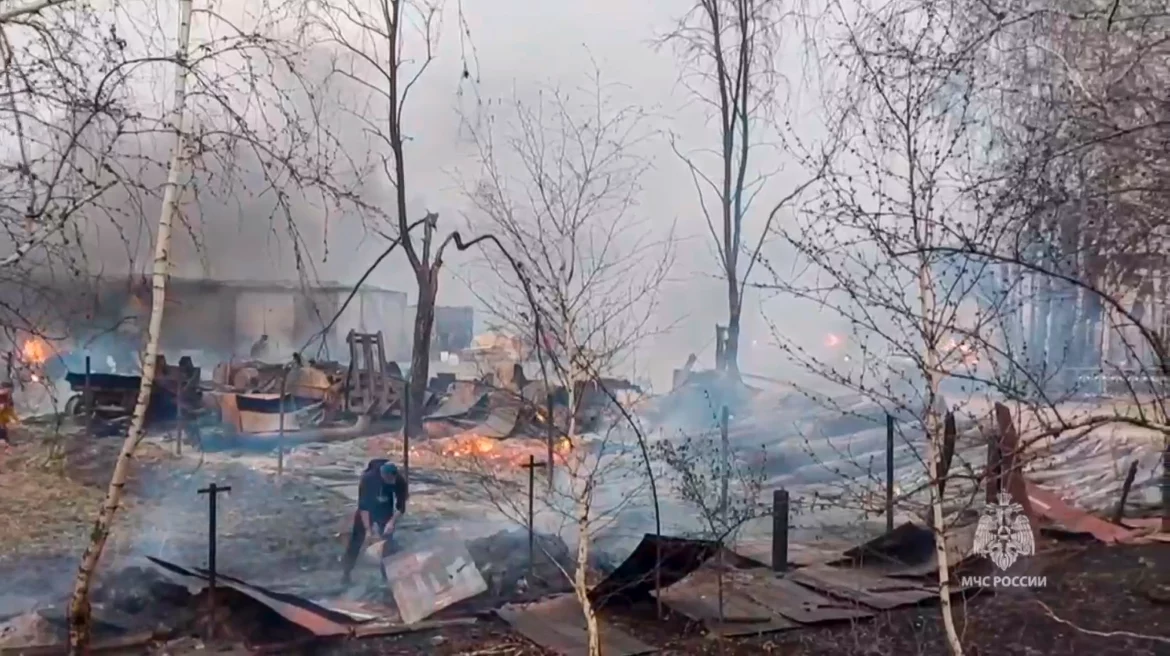At least 21 people have been confirmed dead in wildfires in Russia’s Ural mountains.
Wildfires are said to have raged in the Kurgan region of the Urals and in Siberia all week and local media reported that most of the dead were older people unable to leave their homes. According to local authorities, many of the deaths occurred on Sunday in the village of Yuldus, in Kurgan province on the border between the Urals and Siberia.
A resident of western Siberia’s Tyumen province was reported to have died attempting to extinguish a fire,
Regional emergency service officials said the death toll could increase. A state of emergency was introduced in Kurgan province, where more than 5,000 buildings have burned down. Fires have also engulfed thousands of hectares in Sverdlovsk province, and areas of Siberia’s Omsk and Tyumen provinces.
During a visit to Kurgan province on Monday, Russia’s emergency situations minister, Aleksandr Kurenkov said that settlements were no longer at risk from the blazes, though local media reported on Tuesday that fires still burned there, as well as in Sverdlovsk and Tyumen.
Read also: UK tops list for fossil fuel sites in nature protected areas
The EU’s Copernicus atmosphere monitoring service (Cams) said its data showed “active fires burning in a band stretching from Russia’s Chelyabinsk region across Omsk and Novosibirsk regions to Primorye in the far east, affecting also Kazakhstan and Mongolia.”
Reacting to the development, Mark Parrington, a senior scientist at Cams, said: “The scale and intensity of the current fires are reflecting increased fire risk following some weeks of drier than usual conditions. Wildfires are not particularly unusual in the boreal forests spring, and we have monitored fires in both Canada and Eurasia at this time of year in the past. Nonetheless, we will continue to monitor these conditions as we approach summer when the boreal fire season starts to reach its peak.”
Russia is reported to have experienced especially widespread forest fires, which experts have blamed on unusually dry summers and high temperatures in recent years. The link between the climate crisis and wildfires is complex, but a Carbon Brief analysis quotes Dr Cristina Santin, a wildfires researcher from Swansea University, as saying increased temperatures “can increase the risk of severe fires by causing vegetation to dry out”.
Story was adapted from the Guardian.
